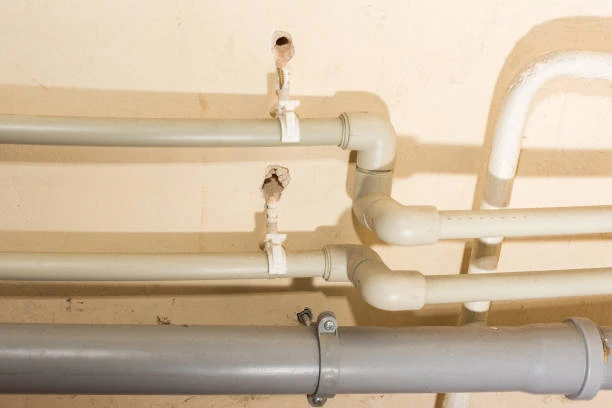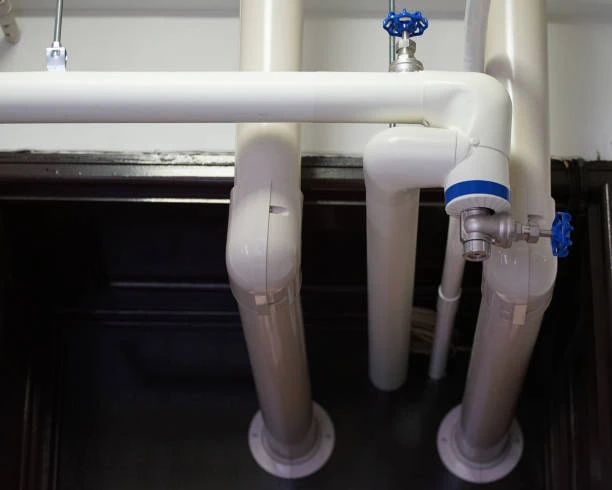Efficient Heat Transfer of PEX Systems in Data Center Liquid Cooling
As global data usage continues to rise, the need for high-performance, energy-efficient cooling in data centres has never been greater. Traditional air-cooling methods are increasingly being replaced or supplemented by liquid cooling systems, which offer superior thermal control. Among the many components of an effective liquid cooling infrastructure, PEX piping systems play a crucial role due to their durability, flexibility, and thermal efficiency. In this article, we explore how PEX piping contributes to efficient heat transfer in data centre liquid cooling, with a focus on proper installation using the PEX expansion tool.
Frequently Asked Questions (FAQ)
1. Can PEX piping be used in data centre cooling systems?
Yes, PEX piping is well-suited for data centre liquid cooling systems due to its high-temperature tolerance, corrosion resistance, and flexibility.
2. What makes a PEX expansion tool important in these systems?
A PEX expansion tool ensures strong, secure, and reliable connections between pipes and fittings. It expands the pipe rather than compressing it, preserving internal diameter and optimising flow rate.
3. How does PEX contribute to energy efficiency in cooling systems?
PEX has low thermal conductivity and smooth interior surfaces, reducing friction and promoting efficient fluid flow, which lowers energy consumption in liquid cooling.
4. Is PEX better than copper or steel for liquid cooling applications?
In many cases, yes. PEX is corrosion-resistant, easier to install, and more cost-effective, especially for low to medium-pressure applications like data centre cooling loops.
5. What type of maintenance do PEX systems require?
PEX systems require minimal maintenance. However, it is important to monitor connections and ensure pipes are not exposed to UV radiation or sharp bends that could cause damage over time.
Definition and Features of PEX Piping Systems
PEX (cross-linked polyethylene) is a type of plastic piping made by chemically cross-linking polyethylene molecules. This process enhances the material’s strength, flexibility, and resistance to high temperatures and pressure, making it ideal for demanding applications like liquid cooling in data centres.
Key Features:
Thermal Endurance: Operates well in both hot and cold fluid systems.
Low Friction Loss: Smooth interior reduces pressure drops across the system.
Corrosion Resistance: No rust or mineral scaling, ensuring long-term efficiency.
Flexibility: Bends easily around obstacles, minimising the need for fittings.
Durability: Withstands repeated thermal cycles without cracking or breaking.
These qualities allow PEX to maintain optimal performance in closed-loop cooling systems.
Common Uses and Application Sectors
While PEX is widely used in residential plumbing and hydronic heating, its role in commercial applications has expanded significantly—especially in technology-driven industries.
Applications in Data Centres:
Rack-Level Liquid Cooling
Rear Door Heat Exchangers
Cold Plate Integration
Chilled Water Distribution
Facility-Scale Cooling Infrastructure
Other Industries Using PEX:
Pharmaceutical Manufacturing
Food Processing
Green Energy Systems
HVAC and Commercial Buildings
In each of these applications, reliability and thermal performance are essential—areas where PEX consistently excels.
Buying Guide: How to Choose PEX for Liquid Cooling
When selecting PEX components for critical applications like data centre cooling, it’s important to consider more than just price.
1. Material Type
PEX-A: The most flexible and suitable for expansion connections. Ideal for high-performance installations.
PEX-B: Slightly stiffer and more affordable; good for fixed routing.
PEX-C: Made via irradiation; suitable for moderate-use cases.
2. Colour Coding
While functionally identical, colour coding simplifies system maintenance:
Red: Hot liquids
Blue: Cold liquids
White/Grey: Neutral or mixed use
3. Certifications and Standards
Look for products certified under:
ASTM F1960 (Expansion): Compatible with PEX expansion tools.
NSF/ANSI 61: Suitable for potable or clean water applications.
ISO 21003: International standard for multilayer PEX pipes.
4. Fittings and Tools
Ensure fittings match the pipe type and installation tool. For expansion systems, use brass or polymer fittings and a high-quality PEX expansion tool.
Installation Best Practices
Proper installation is essential for system longevity and efficiency. Here are key guidelines for deploying PEX systems in a data centre environment.
Use a PEX Expansion Tool
The expansion method involves enlarging the pipe end before inserting a fitting. As the pipe returns to its original size, it forms a tight seal. Benefits include:
Secure, leak-proof connections
Maintained internal diameter
Fast installation with minimal effort
Ensure Clean Cuts
Use a dedicated pipe cutter to ensure straight, clean cuts. Uneven ends may compromise seal quality.
Account for Expansion and Contraction
Allow space for thermal movement. Use hangers and clips that support the pipe without restricting it.
Pressure Test Before Operation
Conduct pressure and leak tests before commissioning to verify joint integrity, especially in high-load cooling systems.
Avoid Direct Sunlight
PEX should not be exposed to UV light. Even in data centres with windows or roof openings, keep all piping shielded or covered.
PEX Piping vs Other Piping Systems (Comparison Table)
| Feature | PEX Piping | Copper | Stainless Steel | PVC/CPVC |
|---|---|---|---|---|
| Flexibility | High | Low | Low | Medium |
| Corrosion Resistance | Excellent | Moderate | Excellent | Excellent |
| Installation Time | Fast (with expansion tool) | Slow | Slow | Moderate |
| Maintenance Requirements | Low | Medium | Medium | Low |
| Thermal Conductivity | Low (efficient insulation) | High | High | Low |
| UV Resistance | Low (needs protection) | Moderate | High | Low |
| Cost | Low to Medium | High | Very High | Low |
| Compatibility with Cooling Fluids | Excellent | Excellent | Excellent | Limited |
This comparison shows that PEX, when used with the correct tools and fittings, offers a cost-effective, high-performance solution for complex cooling systems.
Conclusion
As data centres continue to evolve, the demand for efficient and scalable cooling solutions grows. PEX piping systems offer a reliable, flexible, and efficient option for liquid cooling infrastructure. With proper installation using a PEX expansion tool, these systems can provide decades of trouble-free service. Whether you are designing a new facility or upgrading your existing system, PEX is a smart, future-ready choice for thermal management.
Contact Us
IFAN is a trusted Chinese manufacturer with over 30 years of experience in producing plastic pipes, fittings, and valves. We supply a full range of PEX piping systems and installation tools, including the PEX expansion tool, designed for high-performance environments like data centres.
For more information,pls visit our webside https://waterpipefitting.com/
Pls Mailto: [email protected]
Whatsapp: +86 15088288323
We reply to all queries within 24 hours. For product specifications, catalogue requests, or pricing information, please get in touch with our support team today.














Recent Comments